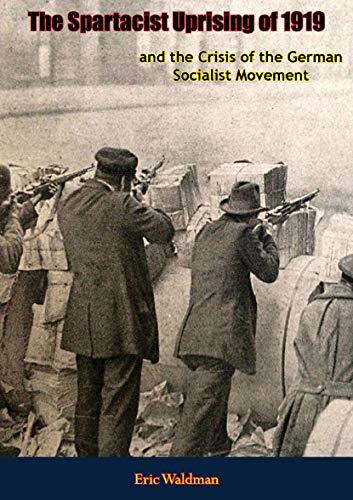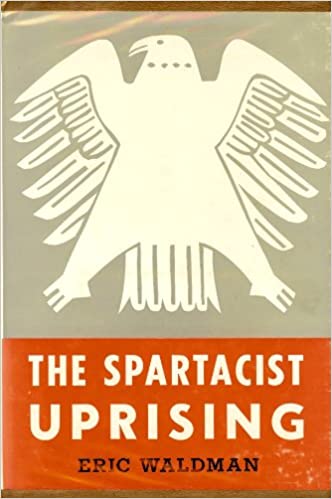Biblioteca / 1950-1959
Eric Waldman. The Spartacist Uprising of 1919 and the Crisis of the German Socialist Movement. A Study of the Relation of Political Theory and Party Practice.
Milwaukee: Marquette University Press, 1958. 260 páginas.
Edición electrónica, Barakaldo Books, 2020.
CONTENTS
Introduction
Part 1
The Emergence of the Spartacists
1 — The Left Wing Within the German Social Democratic Party Prior to World War I
1. The Growth of the German Socialist Movement
2. The Emergence of Different Factions Within the SPD
3. The Influence of the Trade Unions
4. Principal Political Concepts of the Left Wing
5. Nationalism Versus Internationalism
6. General Characteristics of the SPD on the Eve of World War I
2 — The Impact of World War I on the German Socialist Movement
1. Support of the War Effort by the SPD and the Trade Unions
2. The Opposition to the War Policies of the SPD
3. The International Anti-War Effort
4. Characteristic Political Thought of the Spartacists
5. The Relation of the Spartacists to the Major Revolutionary Events During the War
Part 2
The November Revolution and the Spartacists
3 — The Impact of the November Revolution
1. Failure of Parliamentarization, October 1918
2. The November Revolution in the Reich
3. The November Revolution in Berlin
4. The Spartacists and the November Revolution
4 — Consolidation Versus Continuation of the Revolution
1. The “Limited Revolution” of the SPD
2. The Left Wing Radicals’ Opposition to Consolidation
3. The Struggle for Consolidation
4. The Founding of the Communist Party of Germany
Part 3
The Spartacists and the January Uprising
5 — “The Spartacists and the January Uprising”—Civil War in Berlin
1. The Test of Strength
2. The Eichhorn Incident—The Immediate Cause of the Uprising
3. The Major Events of “Spartakus Week”
4. The Spartacists and the January Uprising
5. The Aftermath
6 — The Revolution in Retrospect
Conclusions
Summary
Bibliography

